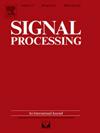Robust mixture filtering block based on logarithmic Student’s t-based criterion
IF 3.4
2区 工程技术
Q2 ENGINEERING, ELECTRICAL & ELECTRONIC
引用次数: 0
Abstract
Determining an appropriate cost function is crucial to develop adaptive filters. However, current robust algorithms may not be capable of satisfying the requirements of various non-Gaussian environments due to their limited performance surfaces and gradient relationships. To this end, a novel and robust cost function called logarithmic Student’s -based (logST) criterion using Student’s distribution is first proposed in this paper. Owing to its excellent properties in the algorithm generalization, robust gradient relationship, and efficient performance surface, the proposed logST algorithm achieves filtering accuracy improvement in both Gaussian and non-Gaussian environments. To further enhance the convergence performance and tracking capability in nonlinear system identification, a novel nonlinear block-oriented framework is constructed using the mixture of original space and random Fourier features space. Then, a recursive method is applied to achieve optimization solution in this nonlinear block-oriented framework, generating the mixture random Fourier features recursive logST (MRFFRlogST) algorithm. Finally, simulations on linear and nonlinear system identifications, as well as Chua’s time-series prediction under various noise environments validate the superiorities of logST and MRFFRlogST.
基于对数Student准则的鲁棒混合滤波块
确定合适的成本函数是开发自适应滤波器的关键。然而,目前的鲁棒算法由于其有限的性能面和梯度关系,可能无法满足各种非高斯环境的要求。为此,本文首先提出了一种新的鲁棒成本函数,称为对数基于学生t分布的(logST)准则。由于其在算法泛化、梯度关系鲁棒性和高效的性能面等方面的优异性能,所提出的logST算法在高斯和非高斯环境下都实现了滤波精度的提高。为了进一步提高非线性系统辨识的收敛性能和跟踪能力,将原始空间与随机傅里叶特征空间相结合,构造了一种新的非线性面向块的框架。然后,采用递归方法在该非线性面向块的框架中实现优化解,生成混合随机傅里叶特征递归logST (MRFFRlogST)算法。最后,对线性和非线性系统辨识以及Chua在各种噪声环境下的时间序列预测进行了仿真,验证了logST和MRFFRlogST的优越性。
本文章由计算机程序翻译,如有差异,请以英文原文为准。
求助全文
约1分钟内获得全文
求助全文
来源期刊

Signal Processing
工程技术-工程:电子与电气
CiteScore
9.20
自引率
9.10%
发文量
309
审稿时长
41 days
期刊介绍:
Signal Processing incorporates all aspects of the theory and practice of signal processing. It features original research work, tutorial and review articles, and accounts of practical developments. It is intended for a rapid dissemination of knowledge and experience to engineers and scientists working in the research, development or practical application of signal processing.
Subject areas covered by the journal include: Signal Theory; Stochastic Processes; Detection and Estimation; Spectral Analysis; Filtering; Signal Processing Systems; Software Developments; Image Processing; Pattern Recognition; Optical Signal Processing; Digital Signal Processing; Multi-dimensional Signal Processing; Communication Signal Processing; Biomedical Signal Processing; Geophysical and Astrophysical Signal Processing; Earth Resources Signal Processing; Acoustic and Vibration Signal Processing; Data Processing; Remote Sensing; Signal Processing Technology; Radar Signal Processing; Sonar Signal Processing; Industrial Applications; New Applications.
 求助内容:
求助内容: 应助结果提醒方式:
应助结果提醒方式:


